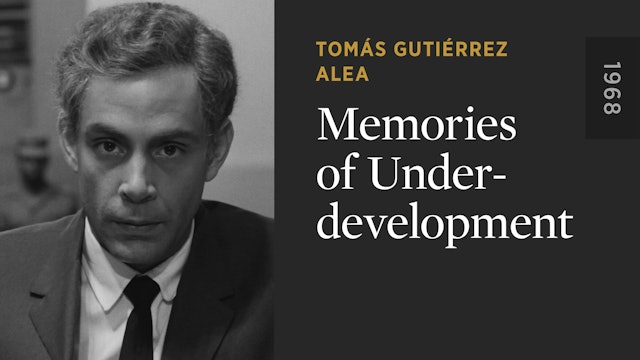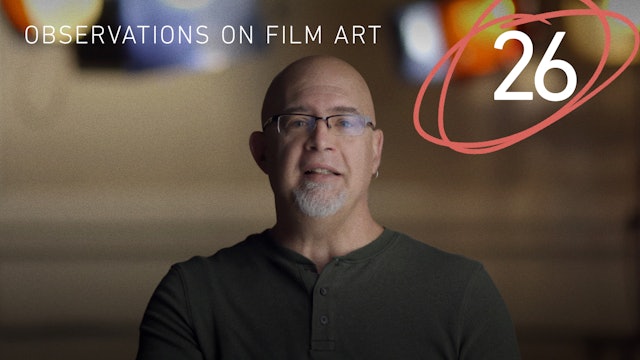The Revolutionary Subjectivity of MEMORIES OF UNDERDEVELOPMENT
2 Episodes
Observations on Film Art No. 26
The first Cuban film to garner international attention in the years following the nation’s 1959 revolution, Tomás Gutiérrez Alea’s MEMORIES OF UNDERDEVELOPMENT remains one of the most important works of the influential Third Cinema movement that emerged in the developing world as a response to neocolonialist modes of filmmaking. In this episode of Observations on Film Art, Professor Jeff Smith explores the film’s complex depiction of its notably unsympathetic central character—a misanthropic bourgeois intellectual whose moral apathy has rendered him a relic of a bygone era—and how Alea uses a variety of innovative stylistic techniques to evoke his subjectivity. In doing so, Smith illuminates how this landmark of Cuban cinema challenged audiences to evaluate their own commitment to the revolution.
-
The Revolutionary Subjectivity of MEMORIES OF UNDERDEVELOPMENT
Episode 1
The first Cuban film to garner international attention in the years following the nation’s 1959 revolution, Tomás Gutiérrez Alea’s MEMORIES OF UNDERDEVELOPMENT remains one of the most important works of the influential Third Cinema movement that emerged in the developing world as a response to ne...
-
 1:39:02Episode 2
1:39:02Episode 2Memories of Underdevelopment
Episode 2
Directed by Tomás Gutiérrez Alea • 1968 • Cuba
Starring Sergio Corrieri, Daisy Granados, Omar ValdésThis film by Tomás Gutiérrez Alea is the most renowned work in the history of Cuban cinema. After his wife and family flee in the wake of the Bay of Pigs invasion, the bourgeois intellectual Serg...



